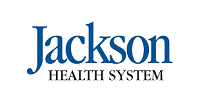.jpg)
 Florida is in the midst of an opioid crisis. Lack of effective State regulatory oversight of residences known as “sober homes” was found to be a significant contributing factor to the rising death toll from opioid overdose. Sadly, the additional insurance coverage for substance abuse treatment in the Affordable Care Act, combined with Florida’s lack of stringent regulation and oversight of sober homes, enabled widespread abuse by unscrupulous operators taking advantage of vulnerable patients for financial gain. A scheme of kickbacks between some treatment providers and sober homes led to a revolving door for many substance use disorder patients. These homes often enabled patients to again become addicted after treatment, thus needing readmission for further treatment paid by insurance, and so on. The problem was further exacerbated by aggressive marketing practices by some providers and marketing companies enticing patients from within and without Florida and paying or receiving payments based on the volume of clients admitted to treatment centers.
Florida is in the midst of an opioid crisis. Lack of effective State regulatory oversight of residences known as “sober homes” was found to be a significant contributing factor to the rising death toll from opioid overdose. Sadly, the additional insurance coverage for substance abuse treatment in the Affordable Care Act, combined with Florida’s lack of stringent regulation and oversight of sober homes, enabled widespread abuse by unscrupulous operators taking advantage of vulnerable patients for financial gain. A scheme of kickbacks between some treatment providers and sober homes led to a revolving door for many substance use disorder patients. These homes often enabled patients to again become addicted after treatment, thus needing readmission for further treatment paid by insurance, and so on. The problem was further exacerbated by aggressive marketing practices by some providers and marketing companies enticing patients from within and without Florida and paying or receiving payments based on the volume of clients admitted to treatment centers.
A Whole New World for Substance Abuse Service Providers and Marketers
On June 27, 2017, Governor Scott signed into law HB 807, the “Practices of Substance Abuse Service Providers Act,” (the “Act”) a new omnibus law, effective July 1, 2017, to regulate the substance use disorder industry in Florida. Attacking the abuses by both treatment providers and sober homes, now known officially as “recovery residences”, the Act prohibits a treatment provider from referring a prospective, current, or discharged patient to a recovery residence, or accepting a patient referral from a recovery residence, unless, with limited exceptions, the recovery residence holds a valid certificate of compliance from the State Department of Children and Families (“DCF”) and is actively managed by a DCF certified recovery residence administrator.
In addition to treatment providers facing administrative fines and sanctions against their DCF licenses, violation by any person or company of this referral prohibition constitutes unlawful Patient Brokering. Florida’s Patient Brokering Act is a strict liability law — if you violate it, you are liable regardless of intent. Violations of the Patient Brokering Act are felonies, punishable by fines from $50,000 to $500,000 and imprisonment from 5 to 30 years, depending on the number of patients involved. The new Act now also defines a Patient Brokering violation as part of racketeering (RICO) activity under the criminal code.
Addressing another major part of the industry’s problem, the new Act requires any entity providing substance abuse marketing services to obtain a license from the Department of Agriculture and Consumer Services (“DOACS”) before doing business in Florida. “Doing business in Florida” has a very broad definition under the Act. It means any marketer located in Florida that is marketing for a Florida treatment facility or recovery residence, including an in-house call center, and marketers operating from other states or nations on behalf of substance abuse service providers or recovery residences located in Florida. Whether licensure is required or not, the Act makes all substance abuse marketers subject to criminal penalties for making a knowing or willful false or misleading statement or providing false or misleading information, violating Patient Brokering, or having a website or link that surreptitiously directs a reader to another website. The Act also requires specific terms and conditions that must be included in marketing contracts with treatment providers or recovery residences.
Finally, the law strengthens the DCF substance abuse treatment provider licensure program and the regulation of service providers. It also substantially increases the penalty for unlicensed substance abuse service providers. The DCF must draft and publish, by January 1, 2018, proposed rules on minimum licensure standards, which will include requiring that providers be accredited for each of their licensed service components. The Act also permits DCF to make unannounced inspections at any time and expands DCF’s authority to take action against a licensed substance abuse service provider for violations on a tier-based system that also includes the imposition of significant fines.
Treatment providers, recovery residence operators and marketing entities who do business with them should consult qualified health law counsel to advise and assist them with compliance with the complex new Practices of Substance Abuse Service Providers Act, and/or to take advantage of the opportunity to submit comments when DCF publishes the proposed new licensure standards.

























